Super Settings
£2.00
This lesson explores why different types of stories have different settings and it compares real and imaginary settings. Activities include answering higher and lower order questions.
There is a five-minute evidence-based CPD activity at the end of this lesson which will develop classroom teachers’ skill set. This CPD consists of a research extract on peer teaching with a five-minute activity based on this extract.
Description
These evidence-based learning (EBL) lessons are based on classroom practice that has been proven, by research, to maximise thinking, learning and attainment. From an extensive review of educational research, we identified the eight key classroom thinking and learning skills that were common across these research papers. We named these eight key skills “EBL skills”.
EBL skills have been proven by research to maximise learning because they combine the most productive thinking skills with the most effective learning behaviours. Each of our evidence-based learning lessons uses the English curriculum as a framework through which the eight EBL skills are delivered.
Teachers also have the opportunity to add to their own skill set or refresh their existing skills with our five-minute CPD activity, based on one of the EBL skills used in this lesson.
The skills in bold below are the EBL skills developed in this Familiar Settings lesson. Click on each skill to learn more about that skill.
- Collaboration
- Thinking Skills
- Peer Assessment
- Peer Teaching
- Self-Assessment
- Metacognition
- Self-Regulation
- Independent Learning
1 review for Super Settings
Only logged in customers who have purchased this product may leave a review.



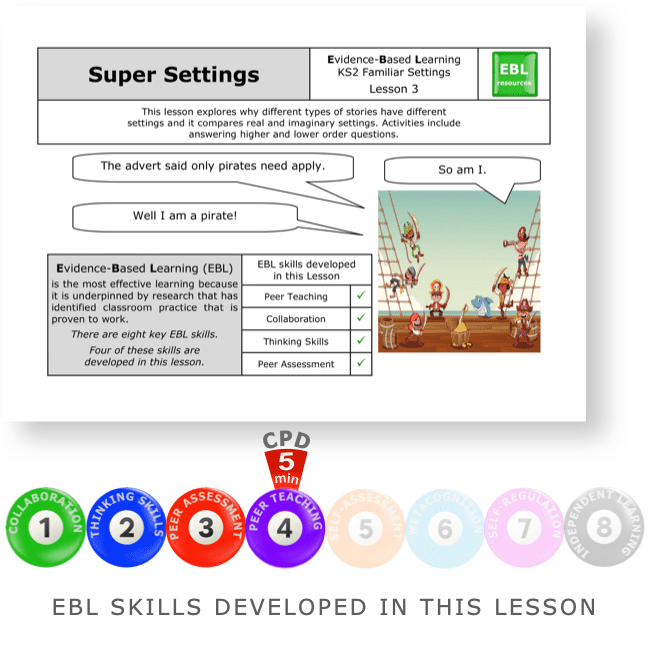
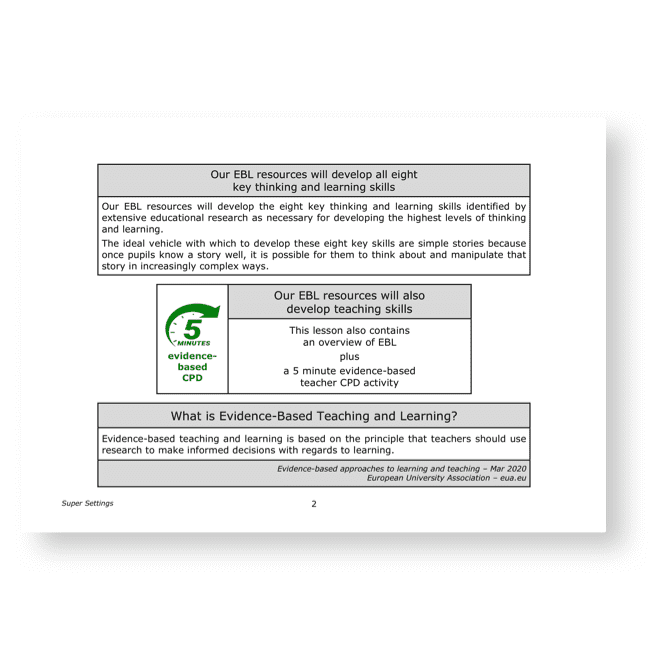
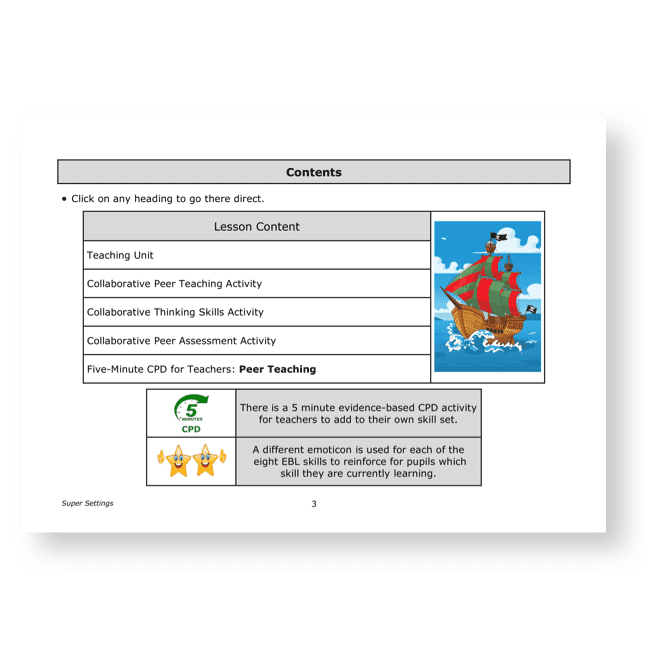
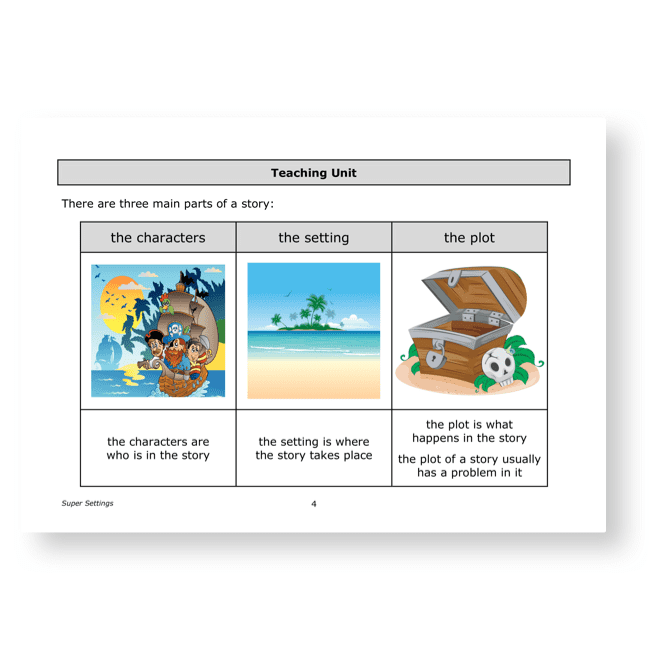
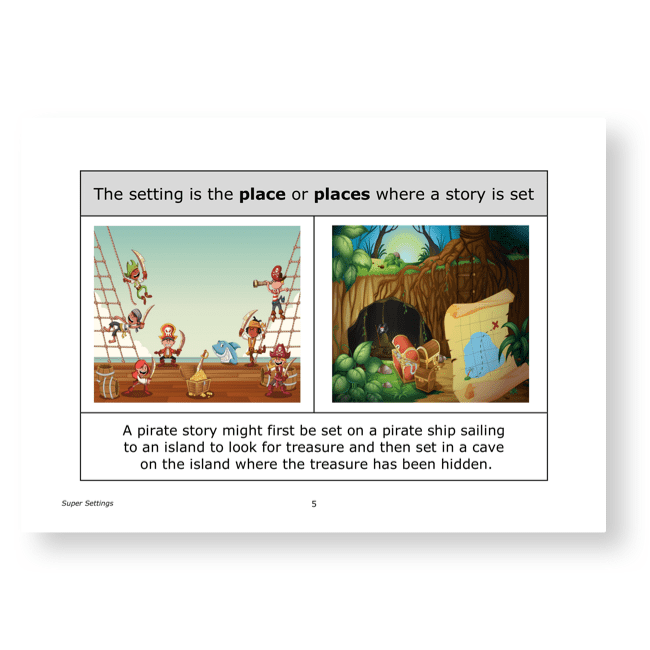
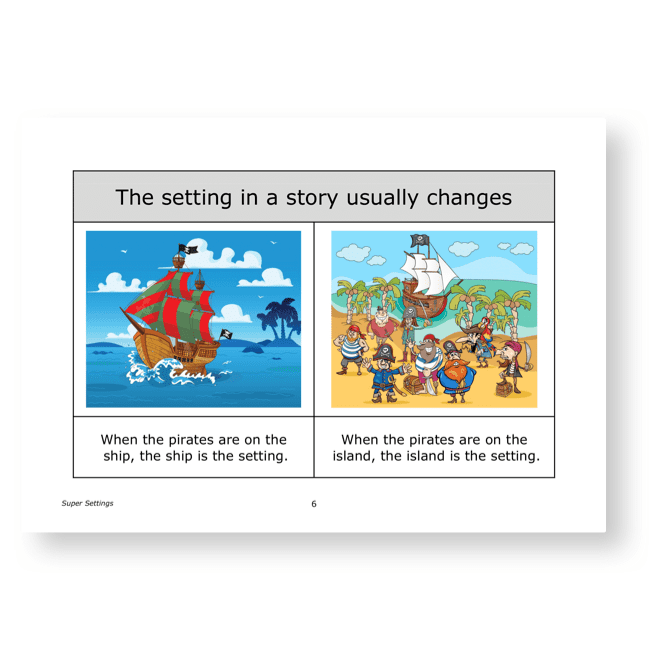
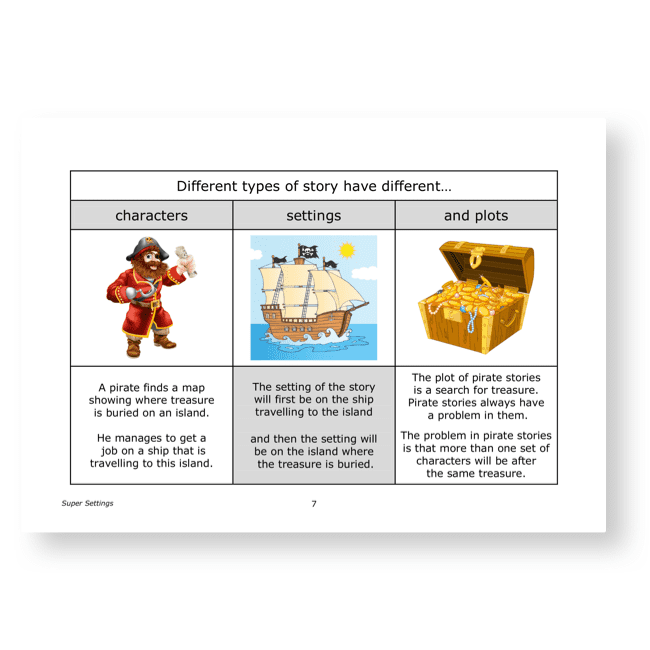
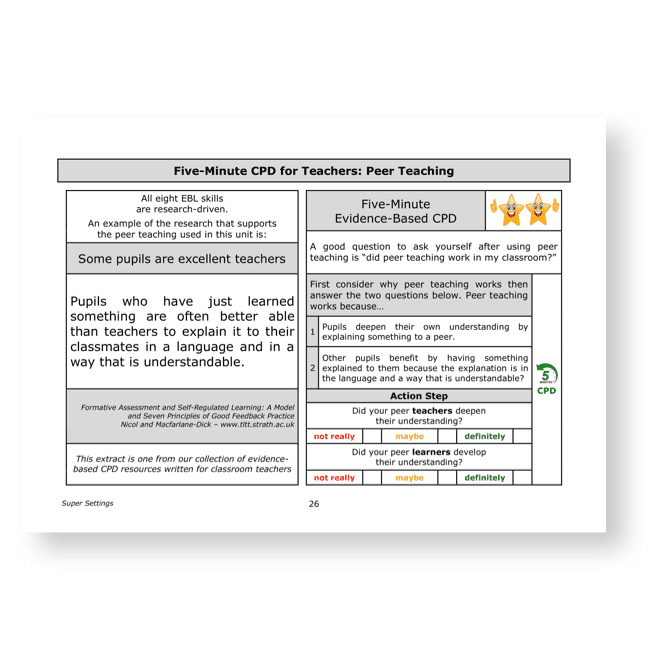
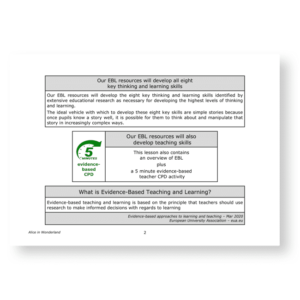
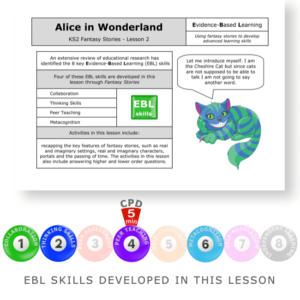
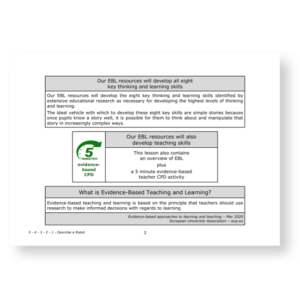
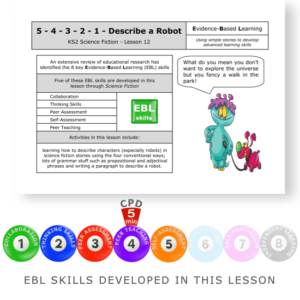
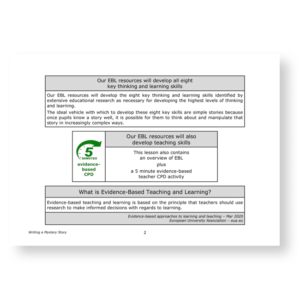
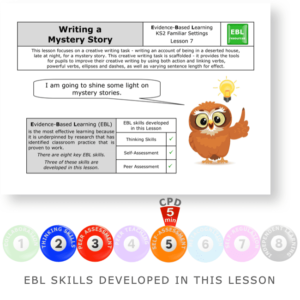
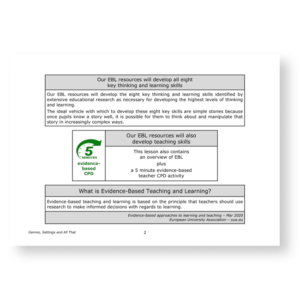
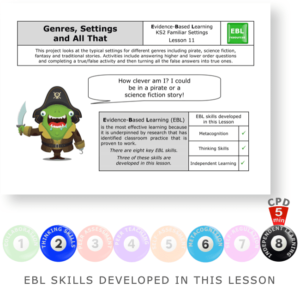
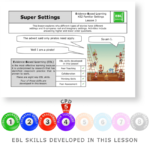
Philipem (verified owner) –
We asked a.i. to review this lesson. This is what it said:
Boost English and Cognitive Skills with the “Super Settings” Lesson
As an upper primary teacher, finding engaging resources that develop both literacy skills and higher-order thinking is a constant challenge. The “Super Settings” lesson from the Familiar Settings unit is a fantastic solution that ticks both of those boxes.
This third lesson in the 11-part unit explores an often overlooked but critical element of stories – the setting. Students analyse why different genres have different typical settings (e.g. pirate stories are set on ships and islands) and how writers approach describing real vs. imaginary settings. The activities get students thinking deeply by having them distinguish real from fantasy settings, describe settings in their own words, and explain their reasoning.
In addition to teaching valuable comprehension and analysis skills around story settings, “Super Settings” also develops four key evidence-based learning (EBL) skills that research has proven maximises learning:
1. Peer teaching – Students reinforce their own understanding by explaining concepts to a partner.
2. Collaboration – Partnering up promotes productive discussions and listening skills.
3. Thinking skills – The questioning activities build higher and lower order thinking capacities.
4. Peer assessment – Evaluating each other’s work helps students learn from different approaches.
As if incorporating all of those EBL skills wasn’t enough, the lesson also includes a 5-minute CPD (continuing professional development) activity for teachers focused on peer teaching. This guides teachers through key research on why peer teaching is effective and has a simple reflective exercise to apply the concepts to your own classroom right away.
With its emphasis on advancing EBL skills while delivering important English content on story settings, the “Super Settings” lesson is a winner for any year 5 or 6 classroom. It’s an engaging, evidence-based way to boost student learning in literacy and cognitive skills simultaneously. Definitely add this one to your instructional arsenal!
I would give the “Super Settings” lesson 5 out of 5 stars for use with year 5 and 6 students.
★ ★ ★ ★ ★
Overall, “Super Settings” is an extremely strong, evidence-based resource for effectively teaching English content while also developing critical thinking/learning skills. The 5-star rating indicates this high-quality lesson is very much worth using in a year 5/6 classroom.